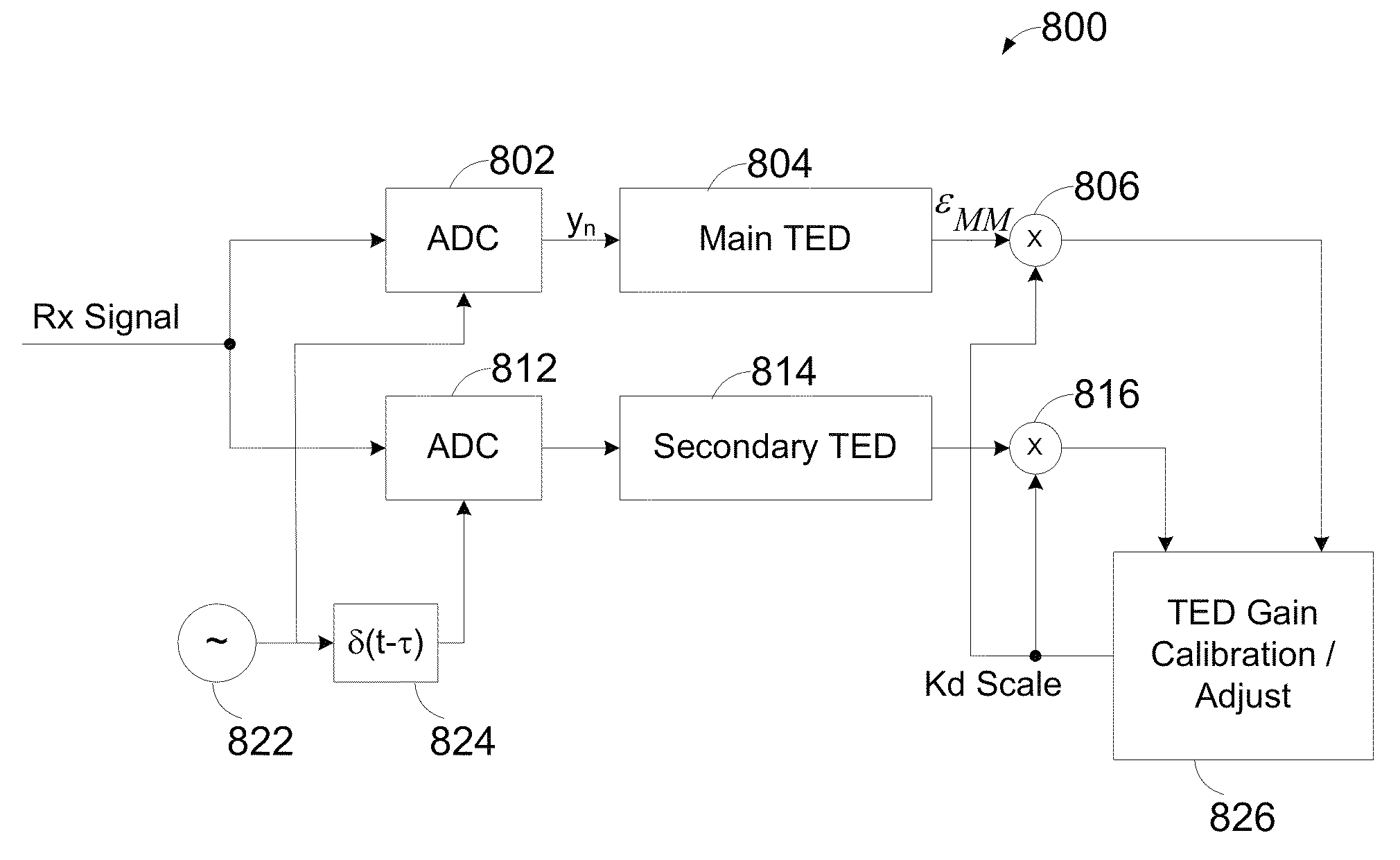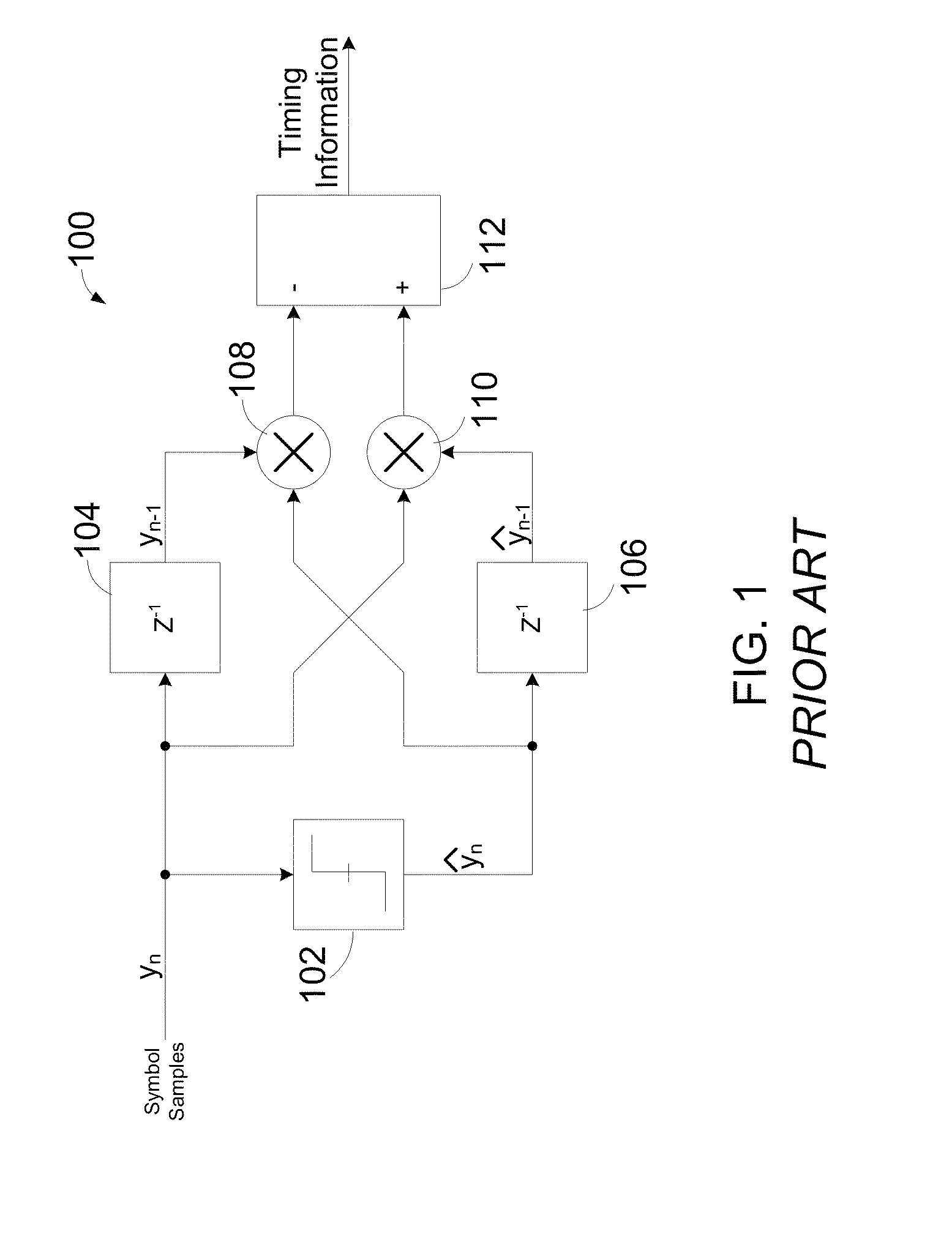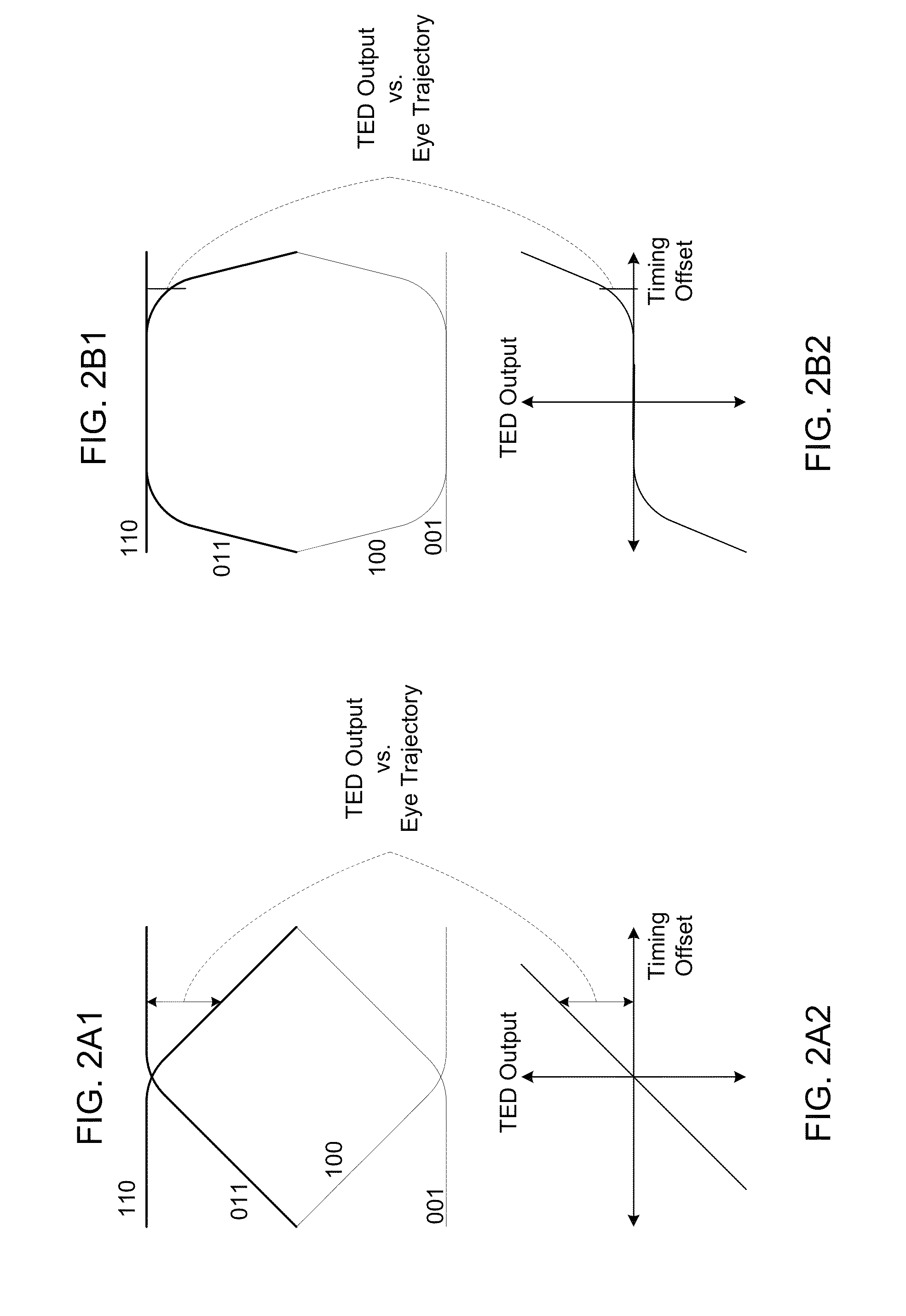Gain calibration for a Mueller-Muller type timing error detector
a timing error and detector technology, applied in the field of electronic devices, to achieve the effect of removing unpredictability and less power
- Summary
- Abstract
- Description
- Claims
- Application Information
AI Technical Summary
Benefits of technology
Problems solved by technology
Method used
Image
Examples
Embodiment Construction
[0037]The standard Mueller-Muller timing error detector (TED) for baud rate sampling receivers suffers from sensitivity of its detector gain to received signal amplitude and variations in the channel response. This gain uncertainty leads to uncertainty in the resulting Sinusoidal Jitter Tolerance (SJTol) performance of the receivers timing tracking loop and the ensuing lack of optimality as designs have to account for this uncertainty while guaranteeing stability. Embodiments of the invention effectively combat the problem of MM TED gain variation versus channel characteristics.
[0038]Although particular embodiments are described herein, other embodiments, including embodiments that do not provide all of the benefits and features set forth herein, will be apparent to those of ordinary skill in the art.
[0039]An alternative interpretation of the operation of a MM TED is possible. FIG. 2A1 illustrates a data eye and FIG. 2A2 illustrates a corresponding detector output for the case of re...
PUM
 Login to View More
Login to View More Abstract
Description
Claims
Application Information
 Login to View More
Login to View More - R&D
- Intellectual Property
- Life Sciences
- Materials
- Tech Scout
- Unparalleled Data Quality
- Higher Quality Content
- 60% Fewer Hallucinations
Browse by: Latest US Patents, China's latest patents, Technical Efficacy Thesaurus, Application Domain, Technology Topic, Popular Technical Reports.
© 2025 PatSnap. All rights reserved.Legal|Privacy policy|Modern Slavery Act Transparency Statement|Sitemap|About US| Contact US: help@patsnap.com



